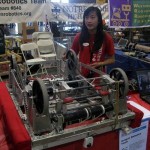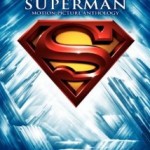A Book for Patent-Hopeful Inventors
Posted on April 23, 2012
Filed Under Business, Technology | Leave a Comment
Now here’s a book that ought to be on technical writers’ shelves, at least if you’re inventive or are working with people who are good at coming up with useful gimmicks. Inventiveness implies trips to the the U.S. Patent office, or at least filings there. And how many of us know reliably how to win a valid patent?
 To that rewarding end, James Floyd Kelly, writing on Wired’s GeekDad blog, recommends John Hershey’s book The Eureka Method: How to Think Like an Inventor. “As a technical writer,” Kelly reports, “I often find myself being introduced to inventors and tinkerers via friends and colleagues. Sometimes these hands-on folks are looking for help with documenting a design or process, and I try my best to offer up advice or sometimes assistance.” In the course of “creating instructions or verifying step-by-steps” Kelly often gets asked about patent law.
To that rewarding end, James Floyd Kelly, writing on Wired’s GeekDad blog, recommends John Hershey’s book The Eureka Method: How to Think Like an Inventor. “As a technical writer,” Kelly reports, “I often find myself being introduced to inventors and tinkerers via friends and colleagues. Sometimes these hands-on folks are looking for help with documenting a design or process, and I try my best to offer up advice or sometimes assistance.” In the course of “creating instructions or verifying step-by-steps” Kelly often gets asked about patent law.
Read more
Comments
Maker Faires Build Community
Posted on April 10, 2012
Filed Under Technology | Leave a Comment
Maker Faires look like places where art and technology come together, unless you consider technology an art in itself. But some would find that arrogant. So what’s a Maker Faire?
 Many of you may already know, because Make magazine is doing a terrific job of promoting its technology fairs and building community around them. (Building and maintaining a community is an art, too, of course.) I stumbled upon Make magazine while surfing the web recently (Dennis Owen, my asssociate, is Encore’s actual technologist). And besides the magazine, there was a Maker Fair tab and promotions for two types of fairs – big and smaller. Maker Faires are coming up in San Mateo, New York’s Queens, Seattle, Detroit and Kansas City, while Mini Maker Faires (the smaller ones, obviously) are scheduled for later this month in Lubbock, TX, Westport, CT, and Burlington, NC. If you click on the calendar link, you’ll find both types of fairs all around the world!
Many of you may already know, because Make magazine is doing a terrific job of promoting its technology fairs and building community around them. (Building and maintaining a community is an art, too, of course.) I stumbled upon Make magazine while surfing the web recently (Dennis Owen, my asssociate, is Encore’s actual technologist). And besides the magazine, there was a Maker Fair tab and promotions for two types of fairs – big and smaller. Maker Faires are coming up in San Mateo, New York’s Queens, Seattle, Detroit and Kansas City, while Mini Maker Faires (the smaller ones, obviously) are scheduled for later this month in Lubbock, TX, Westport, CT, and Burlington, NC. If you click on the calendar link, you’ll find both types of fairs all around the world!
Read more
Comments
John Muir’s Early-Rising Genius
Posted on April 1, 2012
Filed Under Technology | Leave a Comment
We don’t have the space to review the Make blog’s post on “John Muir’s Maker Days” as extensively as it deserves. We’ll simply note that Muir’s youth revealed the ravenous appetite for discovery and application that underlies a lot of technological gains. (We hope it’s not stretching a point to align Muir with technology, but it seems appropriate in the following context.)
Growing up in Wisconsin, the great naturalist and founder of the Sierra Club (and our National Park System) would get up at 1 a.m., hold a candle to the kitchen clock and find that he had gained five hours. “‘I had gained almost half a day. ‘Five hours to myself!’,’ I said, ‘five huge, solid hours!’ I can hardly think of any other event in my life, any discovery I ever made that gave birth to joy so transportingly glorious as the possession of these five frosty hours.'”
Working in his frigid basement, Make continues, Muir used his extra time to design a self-setting sawmill (to provide extra wood to heat the house on zero-degree mornings), “speedily followed by a lot of others – water wheels, curious doorlocks and latches, thermometers, hygrometers, pyrometers, clocks, a barometer, an automatic contrivance for feeding the horses at any required hour, a lamp-lighter and fire-lighter, an early-or-late-rising machine, and so forth.”
Inventiveness may need to be more abstract these days, and who needs to worry about keeping candles lit to stay with it? But the zeal for discovery and application is the key factor that drove Muir and that inspires anyone with a creative bent.
Read more
Comments
Students Made a Lubbock Report More Readable
Posted on March 27, 2012
Filed Under Communication, Government, Technology | Leave a Comment
You’ve got to applaud the graduate students at Texas Tech University who redesigned the City of Lubbock’s annual water report and made it more attractively readable. And you’ve got to wonder why more governmental agencies don’t turn to their local colleges and universities for help on the editorial front.
There are all those students, primed with the latest typographical techniques and many/some of them able to write decent prose. What a help they could be to the busy bureaucrats who may be turning out look-alike redos of last year’s more casually produced reports.
Harrison Ownbey, one of the Texas Tech grad students who helped out in Lubbock, said their biggest concern was that the water report be not only readable, but in compliance with federal and state guidelines. What did the city’s residents want most to know about its water? That it was safe to drink. So the “kids” in the technical writing program spread that right across the top of the front page: “Summary – all contaminants measured within this report were compliant with EPA guidelines.”
Read more
Comments
Video Games as Art, Sometimes Anyway
Posted on March 20, 2012
Filed Under Business, Technology | Leave a Comment
So now for the question of the moment: Can video games be considered art? You think not? Well then, you’re crossing (laser) swords with Kellee Santiago, cofounder and president of Thatgamecompany in Santa Monica, CA. They’ve just issued a new PlayStation game, Journey, that’s been three years in the making and strikes us as having aspects of art. It’s beautiful and apparently soothing, wherever the journey is headed. (Actually, VentureBeat/Gamesbeat notes that Kellee’s company is noted for avoiding violence in its games.)
 Kellee feels strongly about the aspirational aspects of game playing. In 2009, she told a Ted x audience that electronic games “will become more powerful in the 21st century than radio, film and TV combined over the course of the 20th.” Wow! There certainly have been failed, truly dispiriting aspects of TV and radio, but movies seem to be holding their own, as creative and beautiful, occasionally, as Kellee’s ideal games. In the context of sand, Journey’s apparent setting, remember Lawrence of Arabia?
Kellee feels strongly about the aspirational aspects of game playing. In 2009, she told a Ted x audience that electronic games “will become more powerful in the 21st century than radio, film and TV combined over the course of the 20th.” Wow! There certainly have been failed, truly dispiriting aspects of TV and radio, but movies seem to be holding their own, as creative and beautiful, occasionally, as Kellee’s ideal games. In the context of sand, Journey’s apparent setting, remember Lawrence of Arabia?
Read more
Comments
Matinee Movies on Our Desktop Screens
Posted on February 20, 2012
Filed Under Communication, Technology | Leave a Comment
Recently, I took our grandson to a special Saturday morning showing of an early John Wayne western movie featuring Gabby Hayes. The film, as it happened, was 68 years old and the sound had deteriorated, making a complicated plot difficult to follow. (But my grandson loved Gabby Hayes, who played a stage coach driver.)
Duncan and I, it turns out, could have stayed home and watched a vintage movie on my desktop computer screen with possibly greater impact. I say possibly, because my home office isn’t a movie theater. Even so, this full-length Superman movie that I’ve stumbled upon on YouTube is pretty gripping, partly because of its flawless sound. Yes, a Superman movie from 1951 plays better at home than the 1943 John Wayne epic did in the theater.
 That, it seems to me, says a good deal about the Internet and the stand-in world it’s been creating for us. You can be seduced into spending increasing amounts of time on the web, and not only on social media. It’s all out there – movies, lectures, concerts and e-mail besides. Two years ago, Google-owned YouTube passed two billion video views per day. And there are now more than 24 hours of video uploaded every minute to the site.
That, it seems to me, says a good deal about the Internet and the stand-in world it’s been creating for us. You can be seduced into spending increasing amounts of time on the web, and not only on social media. It’s all out there – movies, lectures, concerts and e-mail besides. Two years ago, Google-owned YouTube passed two billion video views per day. And there are now more than 24 hours of video uploaded every minute to the site.
It’s a little scary to realize that “alternative reality” can be embodied in your computer. Superman quelled the Mole Men from underground in the movie, but can we resist our own fascination when technology delivers past, or present, delights so reliably on desktop, or even laptop, screens? We’d best be alert to how alternative reality has been creeping up on us, and leave time for the real world to keep moving us ahead. – Doug Bedell
Comments
Standards Get Us There Consistently and Reliably
Posted on February 16, 2012
Filed Under Business, Technology | Leave a Comment
We return briefly to sentiments being voiced at Quality Digest, this time on the nature of standards. We can’t imagine there are too many folks who view standards, in the context of quality control, as annoyances or encumbrances, but William A. Levinson apparently has come across some such dullards.
 Levinson, a quality engineer and auditor, feels it necessary to remind us that standards are developed for the efficiencies and reliability they insure, not for their own, annoying sake. (Unless, as sometimes happens, they’re relating to management rules or guidelines that aren’t true standards.)
Levinson, a quality engineer and auditor, feels it necessary to remind us that standards are developed for the efficiencies and reliability they insure, not for their own, annoying sake. (Unless, as sometimes happens, they’re relating to management rules or guidelines that aren’t true standards.)
Standards are meant to express, as Frederick Winslow Taylor put it, “the one best way” to accomplish tasks based on given methods. That’s tasks, mind you, not always aims.
Read more
Comments
Quality Principles As Living Ideals
Posted on February 13, 2012
Filed Under Business, Communication, Government, Technology | Leave a Comment
Question: We have such great tools to make things better, so why do we feel in such a funk? A dismal question like this can apply on any given day to the state of our nation or our workplace, if we’re fortunate enough to have one.
Steven Ouellette is a quality manager and process engineer who is also an incurable optimist. He addresses our dire question of the day with methodology to produce a more upbeat answer than we ourselves may have at hand.
“I’m no self-help guru,” Ouellete writes in a Quality Digest column, “just a process engineer. But I do think we need to change something about our collective software. We live in an age of man-made miracles that would have astounded even our recent ancestors. Yet, as the great modern philosopher Louis C.K. says, “Everything is amazing, and nobody’s happy.”
So what do we do, rebuild the factory? No, make it work better and more reliably, by using proven methods, not raucous rhetoric.
 There’s still a big role for the quality movement and the methods it uses to produce noteworthy results. Like, Ouellette advises, measuring inputs to forestall worrying about outputs. That’s the latest iteration in a journey that began with the work of W. Edwards Deming, Joseph Juran and Arnold Feigenbaum in Japan in the 1980s.
There’s still a big role for the quality movement and the methods it uses to produce noteworthy results. Like, Ouellette advises, measuring inputs to forestall worrying about outputs. That’s the latest iteration in a journey that began with the work of W. Edwards Deming, Joseph Juran and Arnold Feigenbaum in Japan in the 1980s.
Read more
Comments
Clarity Produces a Rush, Whether It Survives Or Not
Posted on February 7, 2012
Filed Under Communication, Technology, The Writing Life | Leave a Comment
Here’s a lady who understands a prime component of good technical writing, or any writing, for that matter:
“What all the (technical writing) disciplines share in common is a need for the writer to communicate effectively within the perspective of user need from the document, and to have a strong awareness of good ways to enhance the message through visuals and good use of white space.”
The sentence, by Christine Lebednik on the Street Articles site, is a trifle awkward in terms of what a user needs from the document he or she is reading, but it gets to the two essentials of good technical writing: tight, clear expression of why the document exists (a means to a given, safe end), and ways to enhance it with illustrations and white space.
Christine isn’t in technical writing any longer. When she was, though (prior to the bursting of the IT bubble in 2001-02), she was most familiar with the fields of aviation, medical and pharmaceutical writing.
Our colleague, Dennis Owen, notes that there are many other settings in need of good technical writing. Start by looking around your house, or out the window: “IKEA furniture? Someone had to write the assembly instructions. Component stereo or flat screen TV? Someone had to create the connection and installation diagrams. Smart thermostat? Hell, mine has an entire booklet (and it’s still hard to program). Car? The owner’s manual is a serious example of technical writing. On and on…”
Read more
Comments
Writing Over a Lifetime – Now to E-Raves!
Posted on January 29, 2012
Filed Under Technology, The Writing Life | Leave a Comment
Now here’s a thought (and a little change of pace). Writing is good for the soul, including the souls of technical writers. “I’ll do it forever even when I’m not exactly sure where the story is taking me,” says John Piccarreto, who works in quality assurance for UCB Pharmaceuticals.
 In addition to his day job, Piccarreto writes as a hobby and last May published his first novel, Beer Cart Girls Save the World. The tale was five years in the telling. “It has no really deep messages,” he says, “but it keeps people reading.” Piccarreto’s personal story comes to us via a feature in The Democrat and Chronicle in Rochester, N.Y.
In addition to his day job, Piccarreto writes as a hobby and last May published his first novel, Beer Cart Girls Save the World. The tale was five years in the telling. “It has no really deep messages,” he says, “but it keeps people reading.” Piccarreto’s personal story comes to us via a feature in The Democrat and Chronicle in Rochester, N.Y.
Read more
Comments
Recently
- Presentations With Forethought
- Technical Writing’s Lineage – Surely It’s Deeper than Digital
- At the Holidays, Twitting Amazon
- Successful Cookie Baking – From Mom, an Acknowledged Expert
- Slides for a Tech Writer’s Craft
- Digital or Not, Be Clear
- Being Watchful About Digital Designs…
- When Proposals Don’t Click, Keep Making Them Anyway
- Like a Good Gardener, Help an Enterprise Keep Itself Current
- We’re Leaders All, And Need to Think That Way
Categories
Archives
- January 2017
- December 2016
- November 2016
- October 2016
- September 2016
- August 2016
- July 2016
- June 2016
- May 2016
- April 2016
- March 2016
- February 2016
- January 2016
- December 2015
- November 2015
- October 2015
- September 2015
- August 2015
- July 2015
- June 2015
- May 2015
- April 2015
- March 2015
- February 2015
- January 2015
- December 2014
- November 2014
- October 2014
- March 2014
- February 2014
- January 2014
- December 2013
- November 2013
- October 2013
- September 2013
- August 2013
- July 2013
- June 2013
- May 2013
- April 2013
- March 2013
- February 2013
- January 2013
- December 2012
- November 2012
- October 2012
- September 2012
- August 2012
- July 2012
- June 2012
- May 2012
- April 2012
- March 2012
- February 2012
- January 2012
- December 2011
- November 2011
- October 2011
- September 2011
- August 2011
- July 2011
- June 2011
- May 2011
- April 2011
- March 2011
- February 2011
- January 2011
- December 2010
- November 2010
- October 2010
- September 2010
- August 2010
- July 2010
- June 2010
- May 2010
- April 2010
- March 2010
- February 2010
- January 2010
Blogroll

